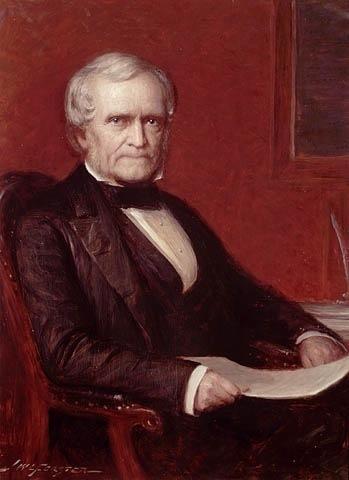After the War of 1812, officials established a policy of neutrality between the United States and Britain. When Canadian rebels attempted to find support in the U.S., American authorities arrested and prosecuted British subjects under American neutrality laws.
“perfect good faith towards a friendly nation”
- Secretary of State John Forsyth Sr. to British Ambassador Henry S. Fox, November 15, 1838.

John Wycliffe Lowes Forster, Portrait of William Lyon Mackenzie, Oil on canvas, 1931, Library and Archives Canada.
In June of 1839, jurors assembled to hear the case against William Lyon Mackenzie, a British subject accused of violating the neutrality between the United States of America and Britain.
Following the War of 1812, relations between the two nations slowly improved, despite occasional disputes about jurisdiction. Memories of terror and loss were gradually eroded by economic improvements and government stability.
Dissidents in Canada refused to accept the rule of Britain, preferring the republican ideals of the United States. Multiple rebellions stirred during the 1830s in Lower and Upper Canada. In the winter of 1837, Mackenzie organized a group of rebels to march on Toronto (York), the capital of Upper Canada. British soldiers defended the town, however, and the rebels disbanded. Mackenzie sought asylum in the United States.
Once in New York State, Mackenzie tried to rally Americans in support of a campaign to free Upper Canada from the British monarchy. His supporters claimed Navy Island, in the Niagara River, as their base. In 1838, a U.S. marshal arrested Mackenzie and charged him with violating the neutrality between the two countries.
During his trial, Mackenzie launched into a six-hour oration, in which he “defended himself at great length and with much ability.” Unfortunately, he was unable to convince the jury that his cause had been noble: they found him guilty of violating the neutrality between the countries. Although Mackenzie was a British subject, the judge sentenced him to eighteen months in prison and a ten-dollar fine.
In the decades following the War of 1812, many Americans had begun to enjoy peace with Britain. The importance of exporting republican ideals to Canada lost much of its appeal. When Mackenzie and other rebels threatened the peace, American officials supported the British government by prosecuting violators of neutrality.
Last updated: May 24, 2016
